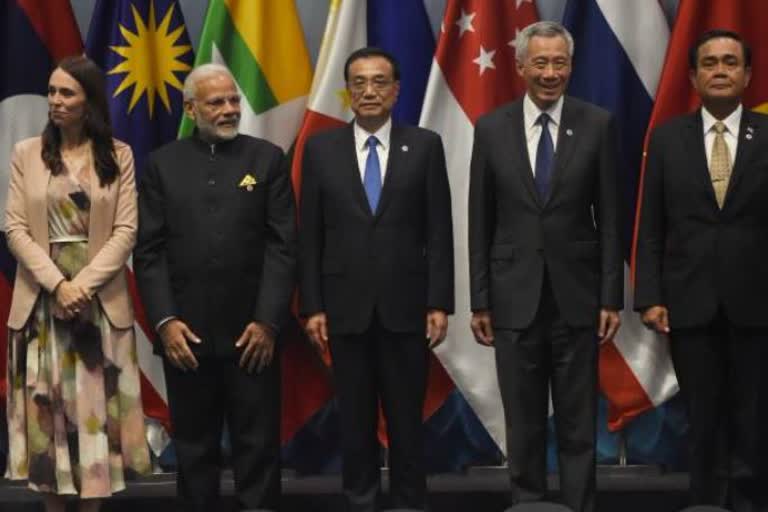New Delhi: Amid much speculation whether India would become a member of the Regional Economic Comprehensive Partnership (RCEP) comprising of 10 ASEAN countries and six of its free trade agreement partners including India, PM Modi has reached Bangkok. But before leaving he dropped a hint that he will take stock of the RCEP negotiations happening for the past six years.
The biggest bone of contention for India joining the RCEP is the current agreement which has been accepted by every other nation. It is a commitment which requires India to eliminate tariffs on 90 per cent of items which will be imported from 10 ASEAN countries, Japan and South Korea. And, also ending tariffs on 74 per cent products which India will import from China, Australia and New Zealand.
India fears that this mega trade deal in its current format will benefit Chinese firms as they will flood Indian markets with their products which can do significant damage to the country's manufacturers and traders. Union Commerce Minister Piyush Goyal is already in Bangkok to finalise the negotiations.
Read more:RCEP pact will deal 'body blow' to Indian economy: Sonia Gandhi
While in India, a huge uproar has already started over it as farmers' body All India Kisan Sangarsh Coordination Committee has decided to stage a nationwide protest on November 4 against the RCEP.
Talking to ETV Bharat, All India Kisan Sangarsh Coordination Committee Convener VM Singh lashed out at the government for not taking multiple stakeholders into a loop which are going to be affected by it.
He stressed that these negotiations have deferred 25 to 26 times in the last six years and the government should defer negotiations now as well and talk to multiple stakeholders involved in it.
Concurring with it, economist Akash Jindal urged the government to be a tough negotiator in the RCEP. He said, "I am for and I am with the Indian agriculturalists. Firstly, whatever trade ties, whatever trade treaties our agriculturalists, our farm outputs must be protected."



